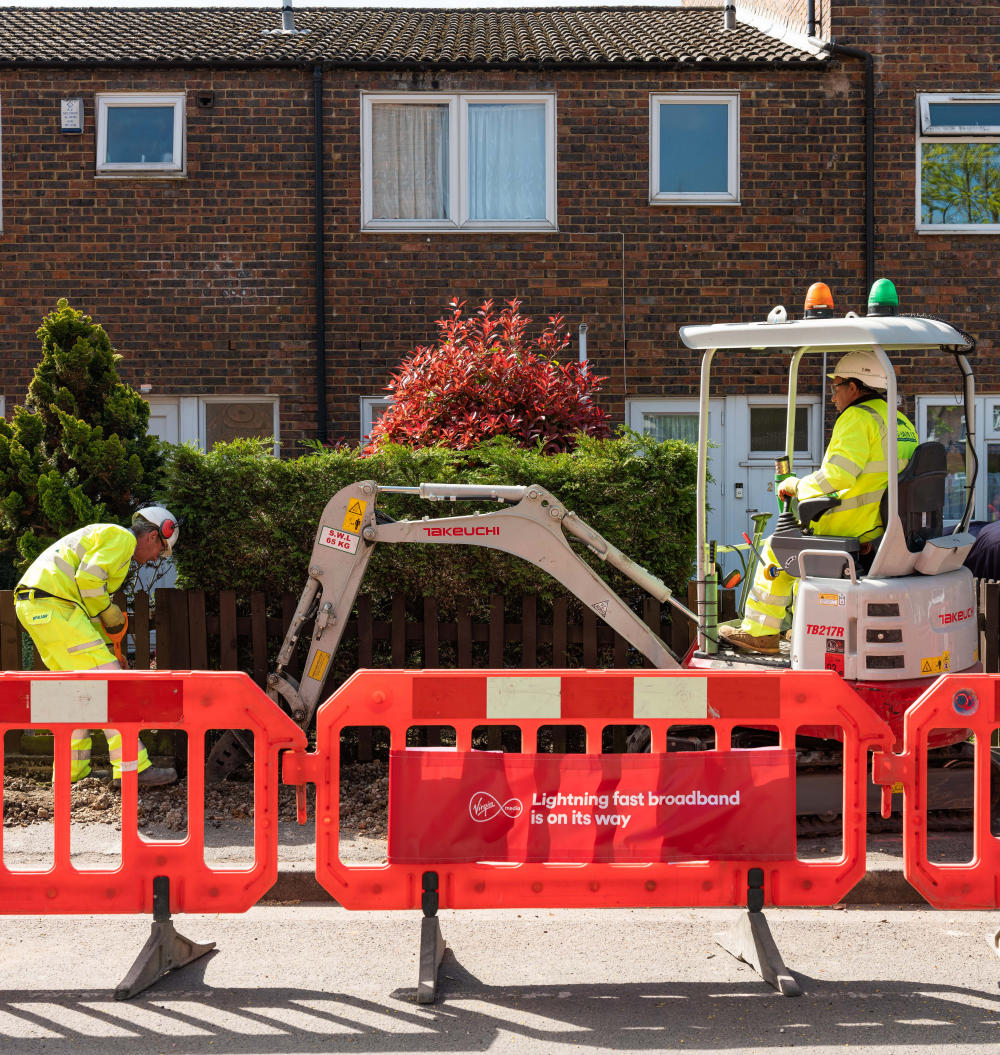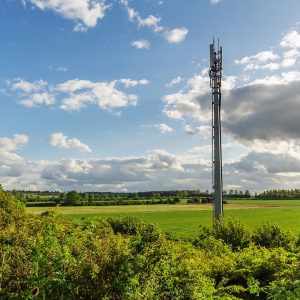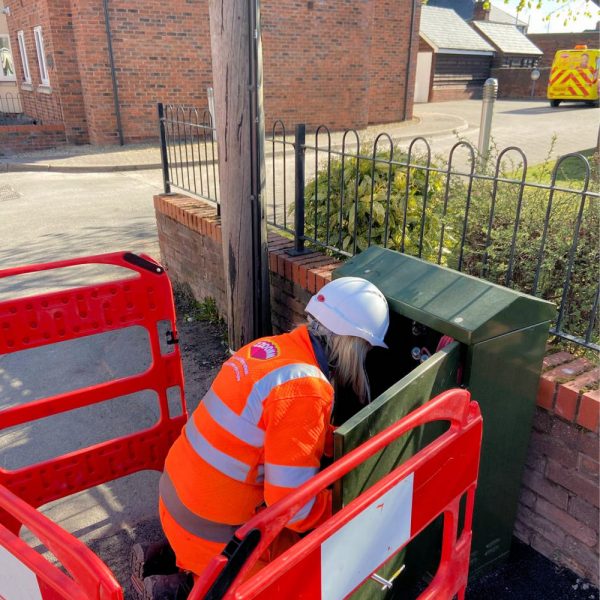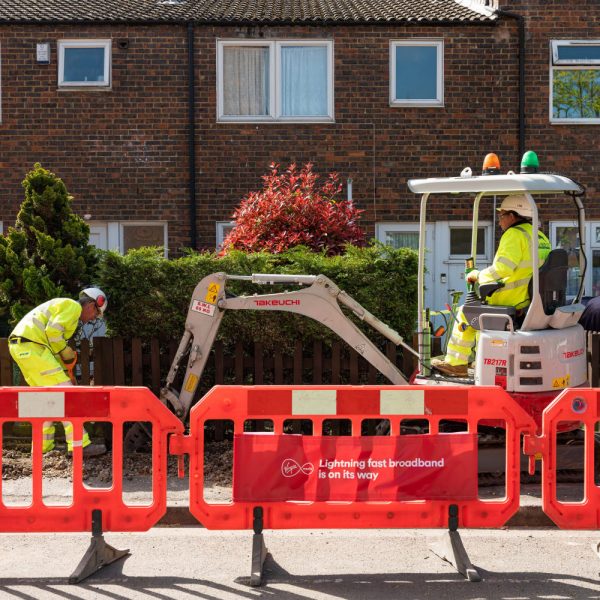Truespeed CEO – We Hope to Reach 200,000 UK Premises with FTTP
7. Speaking of the ASA, Cityfibre recently announced that they were seeking a Judicial Review of the watchdog’s decision not to clamp down on ISPs that advertised slow hybrid fibre (FTTC / VDSL2 / Cable etc.) services as “fibre”, “fibre broadband” or “fibre optic broadband” etc.
Cityfibre described the ASA’s reasoning as being “fundamentally flawed” and to quote their CEO, Greg Mesch: “The time has come to do away with ‘fake fibre’. The ASA’s short-sighted decision to allow yesterday’s copper-based infrastructure to masquerade as the future-proof full fibre networks of tomorrow is a clear failure in its duty.”
No doubt you also have a viewpoint on this matter and what you think needs to change, if anything?
ANSWER:
We fully support CityFibre’s decision to seek a Judicial Review. The ASA has wantonly ignored the independent research and government recommendations on the matter, and seems to have based its decision on the fact that the general public don’t know what the term ‘fibre’ means. Surely the correct response would have been to require broadband providers to be transparent about their services – and help to educate everyone on what exactly they are buying?
I’d like to see continued pressure on the ASA to revise their regulations. If the UK is to move towards a more transparent, equitable and future-proofed digital economy, proper labelling and disclosure around broadband services is vital.
8. Staying with the topic of how service speeds are advertised. Earlier this year Ofcom announced that they would revise their Voluntary Code of Practice for broadband speeds in order to make it easier for consumers to exit their contract without penalty when performance falls below expectations (due to be enforced from 1st March 2019).
As part of this change signatory ISPs will be required to provide more details about their download and upload speeds via their personal estimate for subscribers. The revised estimates must also reflect the impact of network contention during busy peak-times (8-10pm for residential customers and 12-2pm for businesses).
The code has also been extended to cover Cable and FTTH/P providers, albeit with a less aggressive requirement for the minimum guaranteed performance. We note that your ISP has not joined the scheme. Have you ever considered joining and what is currently holding you back?
ANSWER:
The Voluntary Code of Practice is to stop ISPs from over-promising and under-delivering. We don’t struggle with peak-time network contention because we’re an active ethernet provider, not a broadband provider. This code is really for broadband providers, although we may consider joining at some point.
If you’re signed up to the Voluntary Code of Practice it’s because you’re expecting people to get less than what they’re paying for. But we can guarantee the speed being paid for is the speed our customers get direct to their router. We’re not contenders at the edge so it doesn’t matter if everyone is at home and online at the same time – we can guarantee they’ll always get the same speed at the router.
9. Over the past year a multitude of providers have announced plans to significantly invest in major expansions of “full fibre” (FTTH/P) ultrafast broadband infrastructure, which have been partly fuelled by Ofcom’s changes to regulation (e.g. easier access to Openreach’s cable ducts and a revised electronic comms code) and the Government’s support via various funds, as well as a 5 year business rates holiday.
Meanwhile the government has also launched a new consultation, which seeks to understand what kind of future investment and support may be required to help boost FTTP/H and 5G Mobile services. In your opinion, what more must the Government and Ofcom do to further improve the coverage of such services?
ANSWER:
The government don’t need to do anything radically new, but what they must do is ensure the incumbent is not abusing its monopoly. Any government funding must be invested where it’s needed, not just where commercially viable interventions are in place or newly announced. The open market should be allowed to deal with this, and step in to put pressure on OpenReach.
Money can no longer be cited when building business cases against the delivery of ultrafast networks. The demand is there and the appetite for investment is too. The best thing the government can do is to encourage private investors to build these networks, and ensure that regulatory practices are in place to allow investment to flourish where it’s needed, rather than where it’s most commercially viable.
Ofcom should continue to support the truth, and help demystify what full fibre, and the associated jargon and technologies, actually mean for individuals, communities and economies. Most people are still confused, and current advertising from part-fibre ISPs touting their ‘fibre’ broadband services only serves to exacerbate the situation.
10. With so many ISPs planning to deploy FTTH/P connectivity into urban areas, the prospect of a significant overbuild will rise. In some areas we might potentially see a choice of several FTTH/P providers, which is good for consumer choice but might not improve overall coverage and may frustrate locals if their streets are being dug up multiple times by different operators.
What approach do you think should be taken to this or is it more a matter for natural competition and potentially even future market consolidation to sort out?
ANSWER:
The over-arching goal here is to provide future-proofed connectivity to last generations and, through this, transform local economies to drive growth and improve lives. If there are multiple broadband providers going after a specific urban area, then it’s fine to let market economics take care of it, but hopefully without too much overbuilding, and so long as the different solutions being offered support the long-term objective.
That’s why the issue with misleading advertising is so pertinent. It encourages the selling of inferior products to consumers and businesses that may not know there’s a better, future-proofed choice available. Create a fair and level playing field for competition, and there shouldn’t be an issue, as the providers with the best business model will win through.
Where I’m less inclined to promote free competition is where taxpayers’ money is involved. Across the whole country, we have to find ways to avoid any scenarios where Government subsidies are effectively being used to overbuild areas that are already being served by the private sector. The priority should be ensuring full-fibre broadband is a right and not a privilege, and that means using taxpayers’ money first and foremost to connect areas that are not yet being properly served.
11. Ofcom will introduce a new voluntary Automatic Compensation system from early 2019, which will force UK ISPs to compensate consumers (cash or bill credits) for a total loss of broadband connectivity (e.g. when an outage lasts longer than 2 working days). Compensation will also be paid for missed engineer appointments and delayed service installs / activations.
At present only the largest providers have signed-up to the scheme and smaller operators, such as your own, have not joined. What are your thoughts on the usefulness of this scheme and is it something you would consider joining?
ANSWER:
Yes we have considered joining. We are passionate about trying to keep our customers connected and happy. The reality is that, on the rare occasion that there is an outage, our customers are generally reconnected within a matter of hours rather than days. Our standard SLA for residential customers is four days, but we negotiate SLAs of as little as four hours for some business customers, for example.
12. Finally, where do you expect Truespeed to be come 2025?
ANSWER:
Our goal is to have 75,000 properties connected by 2021 so we’re looking to have around 1,800 properties passed every month for the next 5 or 6 years. Come 2025, we’d like to see 200,000 properties connected.
We want to ensure that broadband connectivity is future-proofed for generations to come, and that comes from empowering communities to understand what they are getting so that they can make more informed decisions on their digital future.
End.
We’d like to thank Evan for taking time out of his busy schedule for this interview.
Mark is a professional technology writer, IT consultant and computer engineer from Dorset (England), he also founded ISPreview in 1999 and enjoys analysing the latest telecoms and broadband developments. Find me on X (Twitter), Mastodon, Facebook and Linkedin.
« Major Broadband and Phone Outage Strikes ISPs in East Scotland UPDATE
Telford and Wrekin Achieve 98% Superfast Broadband Coverage »
Latest UK ISP News
- FTTP (5524)
- BT (3518)
- Politics (2540)
- Openreach (2298)
- Business (2264)
- Building Digital UK (2246)
- FTTC (2044)
- Mobile Broadband (1975)
- Statistics (1788)
- 4G (1666)
- Virgin Media (1621)
- Ofcom Regulation (1463)
- Fibre Optic (1395)
- Wireless Internet (1389)
- FTTH (1381)
























































Great work and great for those communities.
Nice to know that rural/semi rural fibre makes economic sense to the company and a canny investor.
It’s a CON as traffic shaped and managed product with lengthy contract to keep you tied in when gfast roles out it will make fibre to premises look expensive compared to leased line, bonded vsdl etc.
Saturate connection and see how long before they cripple it as not a truly contention free product.
False advertising perhaps with T&C making all the usual excuses
If Truespeed are guaranteeing 200Mbps Ethernet for ~£50 per month, I can see how they could manage that for 1000 customers (3000 passed @30%), but 12000 or 75000 really?? That is a lot of backhaul / data centre capacity let alone transit costs & peering ports – realistically possible from a zero start?
I know they have dark fibre from Hibernia Express but your talking about needing a core similar to what some major ISP’s have now for a few million broadband customers
I would assume that all these small players are hoping to be bought out quickly so that the investors can get their money back.
I see no future for a niche infrastructure company. The economics don’t add up. This is just like the 80’s cable TV rush. History repeats itself.
@occasionally factual
If the economics didn’t add up AVIVA would not have invested.
That lot are pretty handy with spreadsheets……
@A_Builder
I wouldn’t buy Aviva shares. Avoid all insurance groups UNLESS you buy at their lowest as in 2008.
Look they are after a quick buck so will sell out as soon as one of the big boys comes knocking.
A must read for anyone passionate about the UK’s future on the world stage. Keep up the good work Evan!
As a rural inhabitant with bright kids this campaign will make a real difference to their future. More and more education and ‘success learning’ is online and real-time.
To answer the ‘Curious’ question on backhaul, 50 mbps for 200,000 customers only requires 10Tbps of core network capacity. This can be delivered today over a single fibre pair using current technology and is cheap as chips compared with the civil engineering costs of access rollout.
How do you calculate that?
Hmm. 10Tb/s of transmission network capacity along with 10Tb/s of routing capacity and 10Tb/s of transit and peering is not trivial.
More likely they engineer their network to try and ensure there’s always 200Mb/s available to a customer at each contention point. They most definitely are NOT providing 200Mb/s of capacity per customer or even 50Mb/s. Anyone seriously think that BT have 100Mb/s of capacity across their network for every Ultrafast customer?
Quote
The CEO is guaranteeing 200Mbps Ethernet, I just don’t think this is thought through, it’s a shame Mark didn’t probe this answer more – I suspect it would fall apart under examination/ reality, you can’t build a new access network, build a new high capacity core network, fund transit and peering and deliver a return to investors for £50 a month – all while racing against a BDUK funded competitor building in the same locations
It’s bonkers
Interesting dual coverage with CDS funded Gigaclear in some places.
Even if they do end up selling they are doing the important part now installing the infrastructure. That’s all that really matters to be honest.
Don’t forget OFCOM are tightening the rope on what is accepted as “contended” and guaranteed minimum speeds during the 9x% of the time at peak period. Which, in all fairness is long overdue, as these new ISP’s sometimes promise the world, when in reality, the facts are very different.
BDUK sponsored projects are the same, there is a minimum contended speed requirement and to be able to provide the minimum speeds during 9x% of the time at peak periods, falling outside that, there are instances where the 20Mbps are lower than originally measured on the old ADSL links! But that is another story for further scrutiny
I think that, regardless if you are an established or new ISP, if you claim whichever speed for super/ultra-fast broadband, it should be delivered at all times, so the 100% coverage mark, and that is what OFCOM should be pushing to, and a minimum of a constant 80% that speed at peak period, not working on timed period percentages.
Interesting would be to organise a trial where everyone connects and downloads a 1Gb packet data at the same time, see what the speeds would drop to as their (new ISP’s) backbone simply does not have the capacity to cope with such demand, furthermore, the big majority if not all of these new networks are not built with a protection path, and often it is the case that it is in a daisy chain, but I will leave your vivid imagination to think what happens when a link goes down…